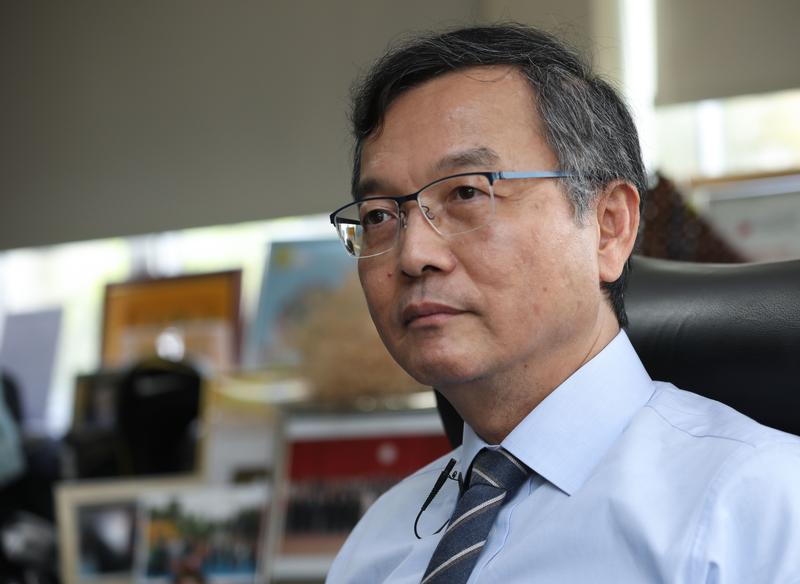 Executive Councilor Lam Ching-choi. (CALVIN NG / CHINA DAILY)
Executive Councilor Lam Ching-choi. (CALVIN NG / CHINA DAILY)
Executive Councilor Lam Ching-choi said new control measures that took effect on Wednesday will effectively block the importation of the coronavirus from foreign countries and its subsequent transmission into Hong Kong.
On Monday, the government announced that non-Hong Kong residents will not be allowed to fly into the city for 14 days from Wednesday. All passengers arriving from the United Kingdom, continental Europe and the United States, where the spread of the virus is severe, will be subject to coronavirus tests at the airport.
“These measures will definitely be very useful because these groups of passengers are high-risk people,” Lam told China Daily in an exclusive interview.
“Many people will be affected if only 2 or 3 percent of arriving passengers have symptoms. Also, some people may lie and not admit they have symptoms, while others do not show any symptoms when they arrive.
“So instead of letting them enter our community and infect other people, the government would rather conduct tests on them at the airport,” he said.
Lam believes the new control measures are “airtight” and will block nonresidents and overseas people who might have been infected from entering Hong Kong.
He also dismissed criticism from the opposition camp. “From the beginning, it has been part of their political agenda to criticize the government for not banning mainland visitors,” he said.
“I hope political issues will not be played up again after foreign people are also banned.
“In fact, the government devised these control measures after closely monitoring the coronavirus situation, and based them on science and facts,” he said.
He also said it was totally unnecessary for some healthcare workers to abandon their duties in public hospitals in February to demand the closure of all checkpoints that link to the Chinese mainland.
The executive councilor noted that of the hundreds of confirmed COVID-19 cases in Hong Kong, only seven had involved people from Wuhan, where the threat of the coronavirus was serious. Yet after the government banned visitors from Hubei province, of which Wuhan is the capital, there were no more confirmed cases involving people from the mainland.
Addressing facility shortage
To tackle the shortage of quarantine facilities and separation wards, he supports the Hospital Authority’s plan to build new facilities, modeled on Beijing’s Xiaotangshan Hospital during the SARS epidemic in 2003. The new facilities will be on sites at Lei Yue Mun and near the Disneyland.
These will be suitable for use as long as they are separately partitioned with proper ventilation and independent toilets, he said.
When isolation wards in public hospitals are full, patients who have mild symptoms and those convalescing can stay there. He estimates these two categories amount to about half the total number of patients.
Lam also said the government was encouraging affected people to quarantine themselves in hotels if their dwelling places are not big, if there was only one bathroom in their apartment, or their household members included elderly people. Alternatively, affected people can stay quarantined at home while their family members live in hotels.
He said that in Macao, some hotels are being used as quarantine centers, but in Hong Kong, the government was not asking any hotels to do this.
“As far as I know, some hotels in Macao offer the entire hotels for quarantine purposes, yet there is not a single hotel in Hong Kong willing to offer the entire hotel building for the same purpose. Perhaps they fear it will harm their image. Macao hotels are willing because they have almost no customers after the casinos closed.
“The good thing of using a hotel as a quarantine center is easy supervision, whereas it is difficult to monitor people if they quarantine themselves at home,” he said.
The government said on Tuesday that 24 people have been sent to quarantine centers for violating home isolation orders for all overseas returnees, issued on March 19.
Ten people were sent to government-designated quarantine facilities on Tuesday after they were tracked down by police after being tipped off by the public or by using surveillance devices the quarantined people were required to wear, the government said in a statement.


